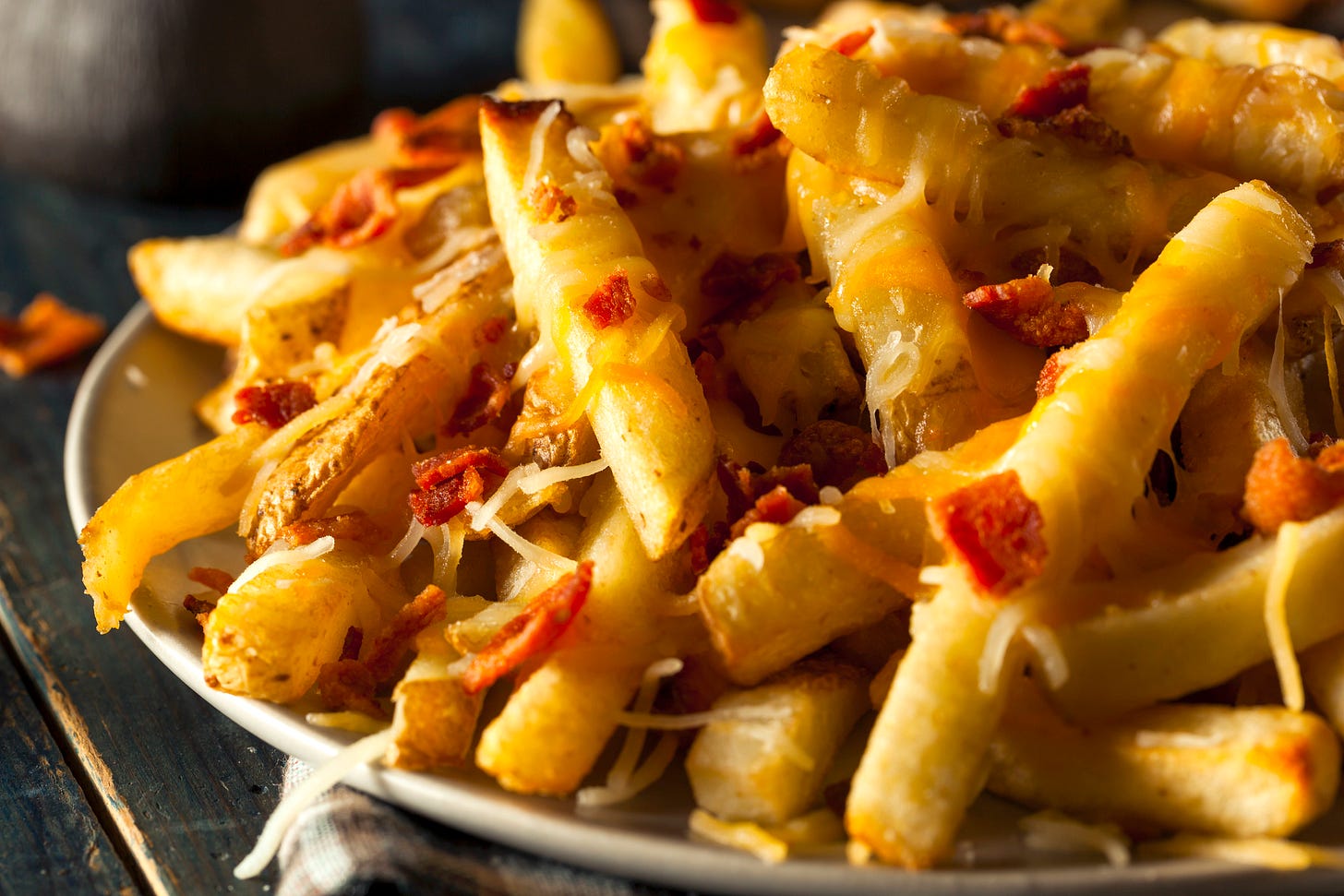We'll always have fries with that 🍟
A fascinating anecdote and some newsletters you don't want to miss 📄
Consumer behavior is incredibly complex and nuanced.
Over the past year, we’ve learned that consumer spending can rise even as consumer sentiment plummets amid high inflation and the rising risk of a recession.
One category that’s seen a particularly high level of inflation is travel, with airline fares up 28% from a year ago. Yet, one of the strongest areas of consumer spending has been vacation travel, which, by the way, is considered a discretionary expense.
On the matter of discretionary spending, Bank of America analysts recently found ”consumers do not necessarily dine out less during downturns, but rather they tend to shift to cheaper restaurants.”
That brings us to one of my favorite quotes from the recent earnings season.
It comes from Lamb Weston LW 0.00%↑ , the $11 billion potato processor that supplies frozen french fries to your favorite restaurants including McDonald’s. During the company’s July 27 quarterly earnings call, CEO Tom Werner called attention to the “fry attachment rate” (via The Motley Fool):
Despite pressure on overall restaurant traffic, the demand for fries remain solid as the fry attachment rate in the U.S., which is a rate in which consumers order fries when visiting a restaurant or other food service outlets, remains above pre-pandemic levels.
In other words, when people go out to eat, they’re not allowing their deteriorating sentiment toward the economy affect their decision to order a side of fries.
Here’s a little more color from CFO Bernadette Madarieta:
Overall, we expect U.S. demand to remain solid, but will also likely be affected by significant inflation that consumers are facing. In the event of an economic recession, we expect demand for French fries will be resilient, although with little to no growth. That's consistent with what we experienced during the great recession from 2008 to 2010.
While the worst economic crisis since the Great Depression might’ve stalled growth, it wasn’t enough to get people to stop ordering fries.
Fascinating stuff.



